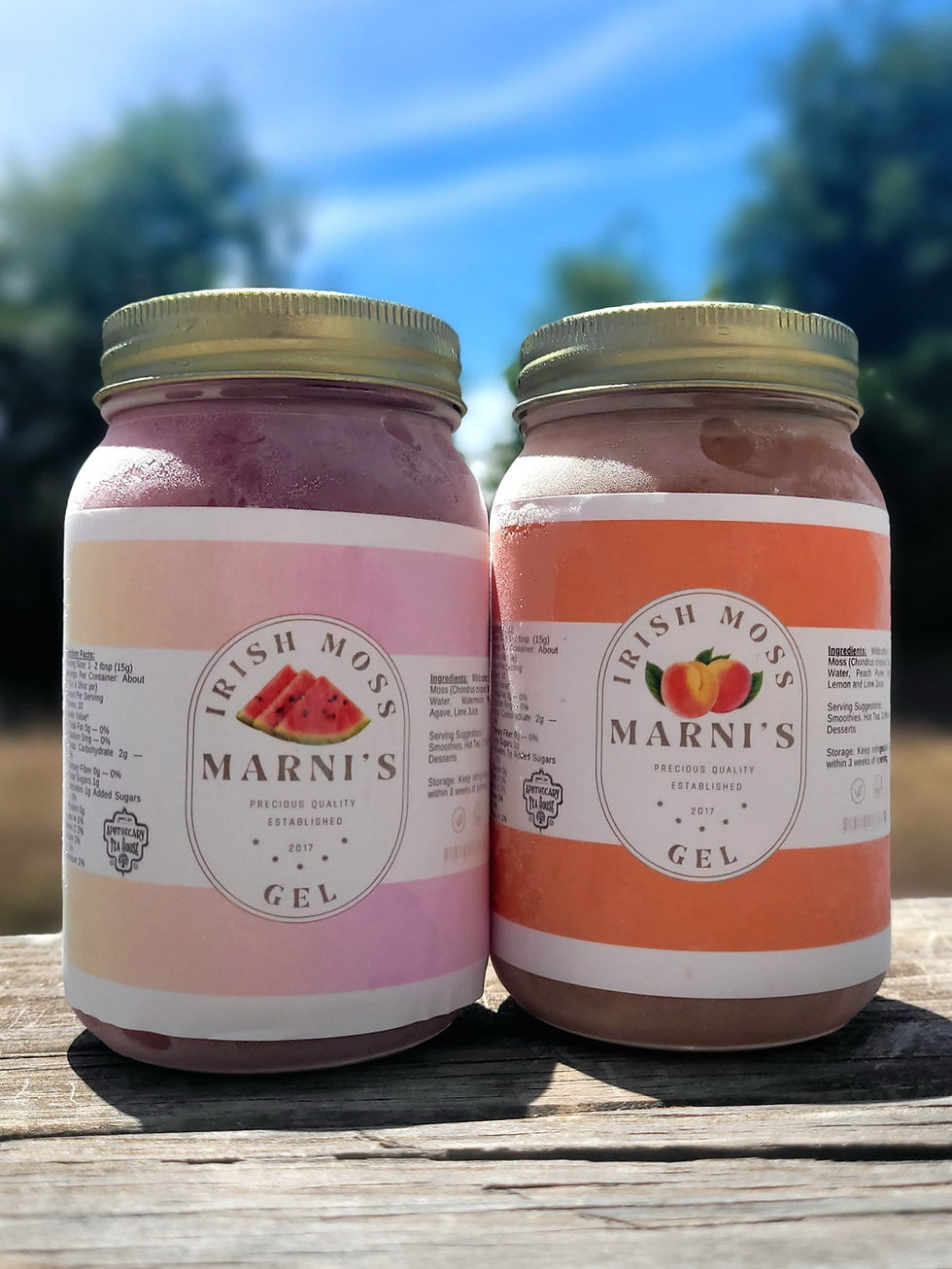7 Herbs for Boosting Immunity
- Marni Woodson, Certified Clinical Herbalist

- Feb 3, 2023
- 5 min read

The Immune System
The way the body is able to protect itself from harmful organisms and maintain balance is thru our immune system. The lymphatic system is included in our immune system and is the way we carry nutrients, drain waste products, and produce antibodies to combat disease. The immune system is a complex network of cells, tissues, and organs that work together to protect your body from harmful bacteria, viruses, and other foreign invaders. It is made up of white blood cells, antibodies, the thymus, the spleen, the lymph nodes, and other components.
The immune system works by recognizing and attacking foreign invaders, while leaving your body’s own healthy cells unscathed. It is an amazing system that helps keep us healthy and free from disease. A sign of a weakened immune system is indicated by small yet persistent minor infections, allergies, food intolerance, and fatigue.
Foods for the Immune System.
Eating a balanced and nutritious diet is key to supporting a healthy immune system. Here are some foods that are especially beneficial:
Fruits and vegetables, particularly citrus fruits, red bell peppers, broccoli, and spinach
Nuts and seeds, such as almonds, walnuts, flaxseeds, and chia seeds
Yogurt, kefir, and other fermented foods
Beans, lentils, and other legumes
Whole grains, such as oats, quinoa, and brown rice
Fish, such as salmon, mackerel, and tuna
Herbs and spices, such as garlic, turmeric, and ginger
Foods rich in probiotics, such as miso, sauerkraut, and kimchi
Try adding a little of each of the above lists to your regular diet daily, and remember a little bit goes a long way so start somewhere. Be sure to also stay hydrated with plenty of water and other fluids like juice, tea, and broth. Additionally, try to get plenty of sleep, reduce stress, and exercise regularly to support a healthy immune system. Try to avoid the excessive use of antibiotics.
Check Out my List of 7 Herbs to Boost Immunity.
#7 Marigold

Marigold Benefits
Marigolds are a colorful and cheerful flower that have a variety of benefits. They are known to be a natural insect repellent, helping to keep unwanted pests away from your garden and outdoor areas. Marigolds are also known to have anti-fungal and anti-bacterial properties, making them great for repelling disease-causing bacteria.
Marigolds are also known to have medicinal properties, as they can help to soothe sore throats and reduce inflammation. They are also known to be a natural source of vitamins and minerals, making them a great addition to any diet.
#6 Garden Sage

Garden Sage Benefits
Sage is a powerful herb with many beneficial uses. It is known to have anti-inflammatory, anti-bacterial, and anti-fungal properties, making it useful for treating a variety of skin conditions. It can also help to improve digestion, reduce stress, and provide relief from headaches. Additionally, sage is a great source of antioxidants, which can help to protect the body from free radical damage and boost the immune system.
#5 Siberian Ginseng

Siberian Ginseng Benefits
Siberian Ginseng is an herb that has been used for centuries in Chinese and Korean medicine. It has a variety of health benefits, including boosting energy, improving brain function, reducing stress, and improving immunity. It is also known to help reduce inflammation, support cardiovascular health, and improve physical performance. In addition, ginseng may help protect against some types of cancer, and may improve blood sugar management. As with any supplement, it's important to talk to your healthcare provider before taking ginseng.
#4 Garlic

Garlic Benefits
Garlic is an incredibly beneficial food due to its high levels of vitamins, minerals, and antioxidants. It has been used for centuries as a natural remedy for various health concerns. Studies have shown that garlic can help reduce the risk of certain cancers, reduce high blood pressure, lower cholesterol levels, improve immune system function, and reduce inflammation.
Garlic also contains compounds that may help fight off infections, such as viruses and bacteria. Additionally, garlic has antibacterial, anti-fungal, and antibiotic properties. All this makes it an excellent choice for boosting overall health and wellness.
#3 Lemon Balm

Lemon Balm Benefits
Lemon balm is a wonderful herb that has so many health benefits. Granny often referred to this herb as, the Cure All. It's been used for centuries to help with stress relief, improve digestion, and even to help with sleep. Lemon Balm also carries with it fever reducing and immune boosting properties.
It has a pleasant citrus taste and can be used in teas, salads, and even desserts. It's important to note that it can be potent, so start with a small amount and increase as needed.
#2 Cone Flower

Cone Flower Benefits
Cone flowers, or Echinacea, are a type of wildflower native to North America. They are known for their purplish-pink petals and spiky centers. They are a popular addition to gardens due to their vibrant color and cheerful appearance. In addition to their aesthetic benefits, Echinacea has many medicinal benefits as well.
It is commonly used to help boost the immune system and reduce inflammation. It has also been found to be effective in treating cold and flu symptoms, as well as other illnesses. Echinacea is a great choice for any garden, not only for its beauty but for its health benefits as well.
#1 Elderflower

Elderflower Benefits
Elderflower is a fragrant and sweet-tasting flower that is often used in herbal teas, beverages, desserts, and jams. It has a range of health benefits such as aiding digestion, reducing inflammation, and helping to boost the immune system. You can purchase dried elderflower online or in health food stores, or you can collect the flowers yourself to make your own tea or other recipes. Have fun experimenting with elderflower today!
Less Stress, Means a Better Immune System too!
Here are some helpful tips to reduce your stress:
Get organized – Make a list of tasks that you need to complete and prioritize them. Break large tasks down into smaller ones and set a timeline for yourself.
Take breaks – Take regular breaks throughout the day to give yourself a mental break. Step away from your desk, take a walk, or even do some stretching.
Talk to someone – Talking to someone you trust can help you process and manage your stress. Talking to a mental health professional can also be beneficial if needed.
Exercise – Exercise helps reduce stress by releasing endorphins that can improve your mood.
Get enough sleep – Getting enough quality sleep is important to help you stay focused, energized, and productive.
Set boundaries – Set clear boundaries with your work and personal life to help you stay focused and manage your stress levels.
Practice mindfulness – Being mindful helps you stay in the present and focus on the here and now. Mindfulness practices such as yoga, meditation, and deep breathing can help reduce stress.



Comments